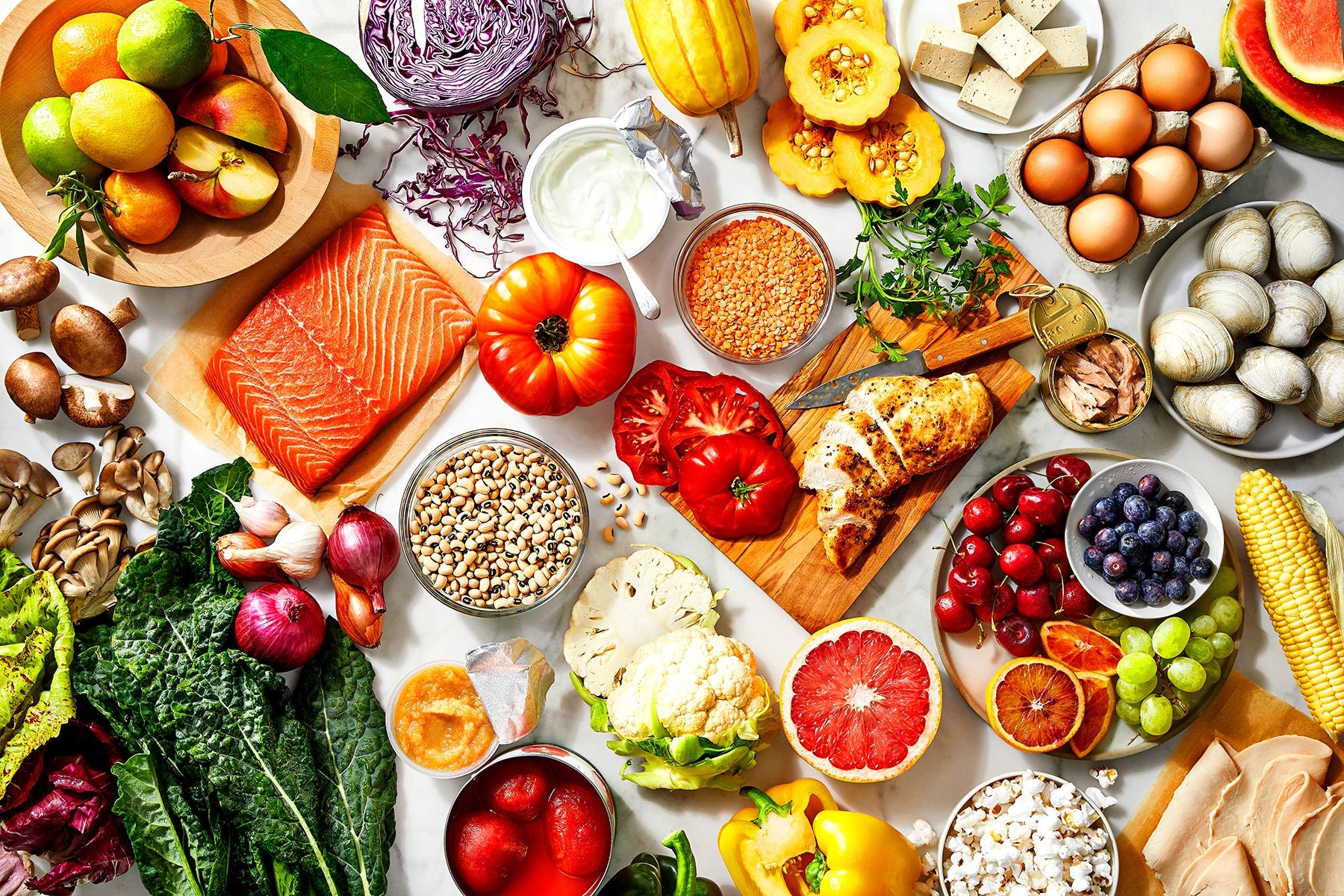What’s the best diet to follow while taking GLP-1 medications?
The reduced appetite that comes along with taking a GLP-1 can make your food choices all the more important.

Most popular diets come with a specific list of foods to eat and foods to avoid. Keto? Eat plenty of bacon and beef. Paleo? Better not touch that bread. But if you’re managing your weight with a GLP-1, the food guidance is a lot less clear. That’s because the medication reduces your appetite, which helps reduce calorie intake without much extra focus. That said, your nutrition still matters when taking a GLP-1 medication. Here’s what you should to know.
How GLP-1s change your eating habits
When you’re taking a GLP-1 medication to help manage your weight, like Wegovy (semaglutide) or Zepbound (tirzepatide), you will find that your appetite isn’t what it used to be. You will likely feel more satisfied with smaller portions, feel less hungry between meals, and think about food a lot less often. Why? Because the GLP-1 targets gut hormones that slow gastric emptying and areas of the brain associated with hunger — a one-two punch that tamps down appetite. This is what helps you achieve a calorie deficit, and is what leads to weight loss.
What to eat while taking a GLP-1
Because you will most likely be eating less when taking a GLP-1, you want to prioritize foods that are nutrient-dense and help you feel your best. Here are some ways to do that:
Eat plenty of lean protein. Whenever you’re losing weight, you are at risk for losing muscle along with fat. Eating high-protein foods (in combination with strength training) can help. Think about foods like chicken, fish, eggs, plant-based foods like tofu or edamame, and low-fat dairy foods like milk, protein drinks, Greek yogurt, and cottage cheese. Lean cuts of red meat and pork are good choices too — just a little less often.
Include a variety of high-fiber foods. One possible side effect of GLP-1s is constipation, and eating foods high in fiber can help. Try to incorporate at least one fiber-rich food in every meal and snack, like whole grains, fruits and vegetables, and beans.
Drink enough fluids. This is another key step to avoiding constipation and managing nausea and fatigue. Yes, water counts, but you can also stay hydrated with zero-calorie beverages like seltzers and unsweetened iced tea.
While these nutrition practices are good for everyone to follow, you’ll also want to tweak your nutrition plan based on your specific needs, such as existing health conditions. For example, if you have hypertension, your doctor may recommend that you limit how much sodium you eat.
The best nutrition plan while on a GLP-1 is one that’s affordable, enjoyable, sustainable, includes your cultural foods, and is realistic for your life. So, your diet might look different than somebody else’s, and that's totally okay. Ideally, the medication should help you feel like you can eat more intuitively without feeling like you are on a “diet.”
What foods to avoid when taking a GLP-1
There aren’t really any foods you need to completely avoid, but if you are experiencing side effects like nausea and acid reflux while taking a GLP-1, you might want to limit foods that don’t help you feel your best. For one person, that might be anything spicy, while for someone else it might be carbonated beverages.
A common culprit for triggering side effects is foods that are high in dietary fats — even the “healthy” ones. Fats can take longer to digest, which can make side effects worse, or make you feel too full for too long. Pay attention to what you’ve eaten recently to see if there’s a common food that tends to make your side effects worse. For a complete list of potential side effects, visit the drug manufacturer websites for: Saxenda (liraglutide), Wegovy (semaglutide), and Zepbound (tirzepatide), the three GLP-1 medications that are FDA-approved for overweight and obesity.
How to get help navigating your diet while taking a GLP-1
Figuring out the right nutrition plan for you while on a GLP-1 — one where you feel the fewest side effects while ensuring you get plenty of key nutrients — can be confusing. You don’t need to do it alone. Joining WeightWatchers GLP-1 Companion Program is a great way to get nutritional guidance tailored specifically to someone taking a GLP-1. Talking to a registered dietitian can also help — especially one with expertise in GLP-1 medication, like the RDs at WeightWatchers Clinic. See if you qualify for prescription weight-loss medication.
Bottom line
GLP-1s can reduce your appetite significantly, which means you’ll likely eat less food than you used to. It’s important that you still prioritize all the key nutrients you need so that you feel good and improve your health. A good place to start? Make sure you are eating enough, and focus on foods high in protein and fiber. You may also want to cut back on any foods that make side effects like nausea and acid reflux worse (something that’s personal to everyone).